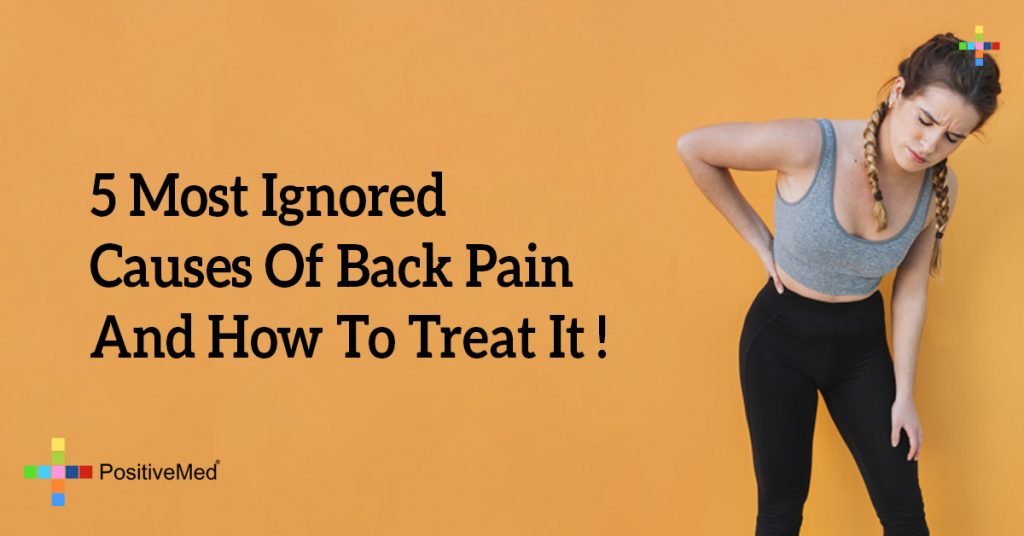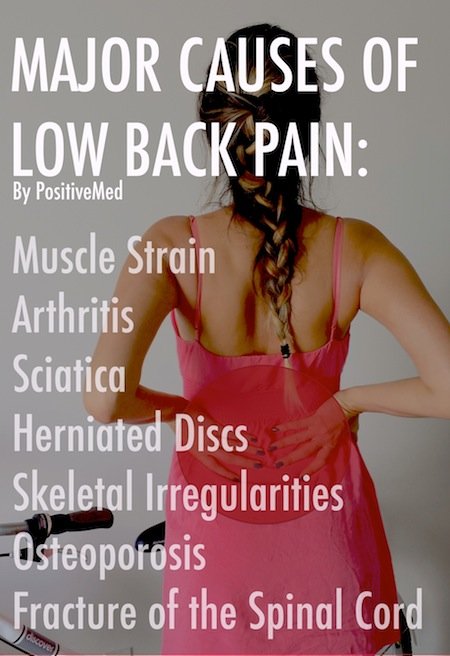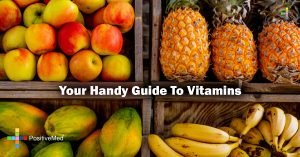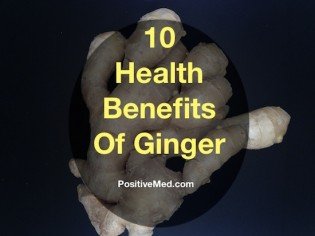
5 Most Ignored Causes Of Back Pain And How To Treat It!
[nextpage title=”…”]
Back muscles cover your body from the top of the buttocks to the back of your neck and shoulders and involves the spine.
The pattern of tissues in the body is called anatomy. The areas of the lower back include the bony lumbar spine composed of vertebrae, singular is vertebra, spinal discs between vertebrae, ligaments around the spine and discs, spinal cord and nerves, muscles of the lower back, internal organs of the pelvis and abdomen, and the skin covering the lumbar area.

The bony lumbar spine is designed so that vertebrae stacked together are able to provide a movable support structure simultaneously protecting the spinal chord from any injury. Our spinal cord is a group of nerve tissue starting at the brain and ending at the base of the spinal column. Each vertebra has a spinous process that shields our nervous tissues from the impact of trauma.
The vertebral discs are pads that act as cushions between the individual vertebra, they reduce the force of stress on the spinal column. They look like a jelly donut with the nucleus a softer jelly in the center and the outer surface surrounding jelly.

Nerves provide sensation to the lower body including thighs, legs, feet, and toes. They leave the lumbar spinal column through bony portals known as foramen. Muscle groups responsible for movement, stretching, rotating the waist, and other lower movements are attached to the lumbar spine through tendon insertions.
The low back provides many important functions like movement, structural support, protection of certain tissues in our body, and supports our upper body weight when we stand.
Many people suffer from pain in back muscles and low back pain, here are some causes:
• Muscle StrainLifting heavy objects repeatedly or abrupt awkward or unusual movements can cause strain to your back muscles and spinal ligaments. Constant back strain in poor health conditions may cause painful muscle spasms.
• ArthritisOsteoarthritis can cause lower back pain. Sometimes arthritis in the spinal column leads to narrowing of the space around the spinal cord known as spinal stenosis. Disorders like reactive arthritis, ankylosing spondylitis, psoriatic arthritis, and the arthritis of inflammatory bowel disease may lead to back pain and stiffness which is at its worst in the morning. This usually occurs between the ages 20-30.
• Ruptured discsSometimes the soft jelly-like material in the center of a disc may bulge out and press on a nerve. The presence of this bulging, or ruptured, disc on an X-ray does not automatically mean back pain, sometimes people with ruptured discs remain pain-free.

• Skeletal IrregularitiesIf your spinal curves are abnormal it can lead to back pain. In scoliosis the spine curves sideways and can be painful, the surgery to correct it can leave you with life-long pain, but without it you can suffer pressure to lungs and heart tissue.
• OsteoporosisFracture of vertebrae can happen when your bones become porous and brittle.

[/nextpage] [nextpage title=”…”]
Natural ways to treat pain in the back muscles and low back pain:
• Alternate heat with stretchingThere are thousands of people with chronic back pain. Stiff or tight muscles and sore joints can be treated with heat. You can choose a topical lotion, hot shower or bath, or heating pad. The warmth eases pain by relaxing muscles and increasing blood flow. Stretch thoroughly after using heat therapy to further relax and lengthen tight tissues. Do not use heat for 48 hours following an acute injury.
• Avoid harmful activitiesWe perform several daily activities that can be harmful to our back. Avoid shoveling as this involves twisting your body to lift the weight of the shovel. Reaching for the backseat of the car to load or unload can stress your back. Avoid picking up children, taking wet clothes from the washer, and other such activities.\
• MassageIt’s important to eliminate waste products from your muscles for them to work efficiently, formation of waste in muscles can cause pain. A gentle back massage will increase blood flow, open blood vessels, relax nerves and muscles, and reduce stiffness and pain.
• Practice good posturePractice good posture while sitting and standing. If you are sitting try not to slump or slouch. Slouching can put a lot of stress on your muscles, ligaments, and discs while increasing back pain and creating hurdles to the healing process. Try to keep the curves of your back aligned, roll up a towel to the size of your forearm and place it in the small of your back to support the curve of your lower back while seated. Support your neck as well.
• Keep movingToo much rest can make your back pain worse, keep moving and stretching your muscles every 15-30 minutes of sitting, when traveling try to walk a little every hour. If your job includes sitting for extended periods, get up and take a walk around your office space, go outside if possible. Keep your muscles moving and relaxed.
Who is prone to back pain?
1. Back pain is more common as you age, it usually starts in your 30s.
2. Those who are out of shape and/or have poor health are more prone to back pain.
3. Extra pounds and obesity lead to back pain. Avoid diets high in calories and saturated fat, the extra pounds put stress on your back and cause pain.
4. Heredity is one factor in back pain, ankylosing spondylitis, a form of arthritis, scoliosis, and lordosis are often hereditary.
5. If you smoke your body cannot send enough nutrients to the discs in your back which can make it weak and cause pain. A smoker’s cough can also cause back pain, smokers take longer to heal so that injuries last longer.
6. Your job can be your enemy. If your job includes pulling, pushing, lifting, or twisting your spine you are at high risk for back pain. If your job includes sitting for extended periods and you have poor posture this may also cause back pain.

[/nextpage]







